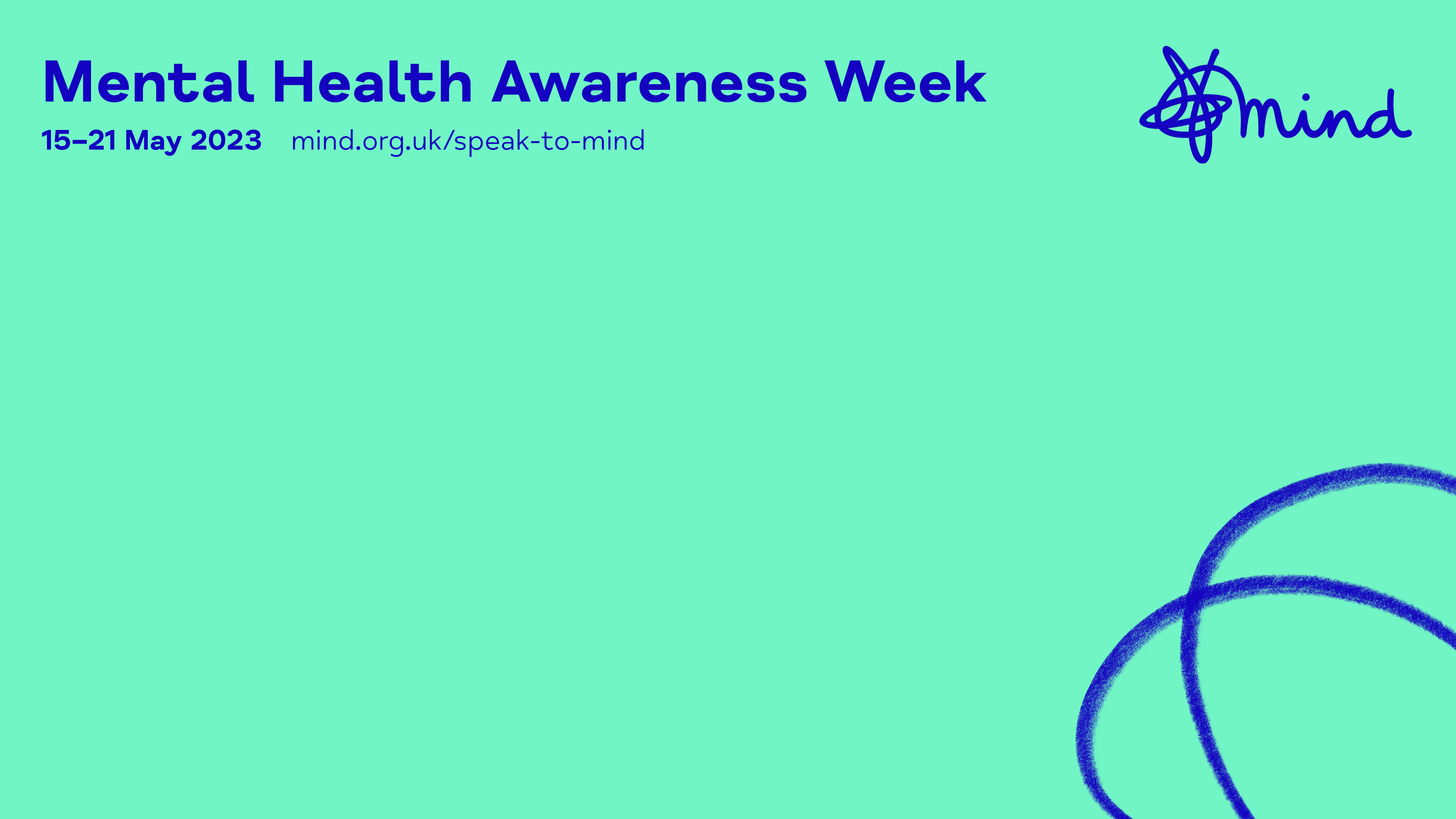This week is Mental Health Awareness Week which is why we want to discuss the importance of addressing mental health issues and managing work stress. Mental well-being directly influences our behaviours, interactions, and productivity, and subsequently, the overall business success. Particularly prevalent in today's work environments are burnout and anxiety, which we are going to discuss in the article.

Unpacking Burnout and Anxiety in the Workplace
Burnout, often the result of prolonged and unmanaged work stress, is a state of chronic physical and emotional exhaustion. This goes beyond everyday fatigue. It can be characterised by an employee feeling cynical, feelings of detachment, a sense of ineffectiveness, and a lack of accomplishment.
However, anxiety disorders can be characterised by excessive and uncontrollable worry, fear, and a constant feeling of impending doom. These feelings can be so intense that they interfere with an individual's ability to function effectively at work.
Both burnout and anxiety can significantly impact an individual's job performance, affecting their concentration, decision-making abilities, and interpersonal relationships.
In fact, a recent study from AXA UK and the Centre for Business and Economic Research has stated that stress, burnout and poor mental health are resulting in a massive 23.3 million sick days a year at a cost of £ 28 billion per year.
And that’s not all, the study also revealed that almost half of the country is currently struggling or experiencing an absence of positive well-being or in emotional distress. This means it’s time to take action in managing work stress and to put in well-being strategies to protect your employees and your business.
The Future of Work
The future of work is evolving, with mental health becoming a critical consideration. Companies are beginning to understand that prioritising mental health is not only a moral obligation but also a strategic business decision. Good mental health can boost employee retention, engagement, and productivity.
Managers, as the nexus between the organisation and its employees, play a pivotal role in improving employee mental health at work. They can set the tone for open dialogue about mental health, build an inclusive culture, and ensure that business policies and practices support mental well-being.
The Role of a Mental Health (MH) First Aider in the Workplace and Why You Need One
A MH First Aider is a trained professional who supports the mental health of employees. Providing guidance, facilitating mental health programmes, and offering the necessary support to those experiencing any mental health issues. Some of their key functions include organising mental health and well-being training sessions, raising awareness about the importance of mental well-being, and offering confidential advice and support to employees.
Companies that have incorporated MH Aider in their workplace wellness programmes have reported tangible positive impacts, including improved employee well-being, reduced absenteeism, and increased productivity.
Actionable Strategies for Addressing Burnout and Anxiety at Work
Combating burnout and anxiety in the workplace calls for a strategic, multi-pronged approach. It's not simply about putting policies in place but also ensuring they're fully implemented and embraced.
- Implement Robust Mental Health Policies: It's essential to develop comprehensive policies that promote mental health. This could include flexible work hours and remote working options. Such policies don’t just tick boxes; they are an acknowledgement of the various roles and responsibilities that employees juggle. They demonstrate that the business respects and values its employees' time and personal commitments. This, in itself, can go a long way in reducing workplace stress
- Promote Work-Life Balance: Beyond policies, it’s also about developing a culture that genuinely respects work-life boundaries. Encourage employees to take regular breaks, use their holiday time, and disconnect from work after business hours. It’s essential to lead by example here. If managers regularly send after-hours emails, employees may feel pressured to do the same. Respect for downtime can help prevent burnout and promote overall well-being
- Encourage Open Communication: Creating a psychologically safe space where employees can discuss their mental health concerns without fear of judgement or repercussions is paramount. This requires an atmosphere of trust and openness, where mental health is not a taboo topic but a recognised aspect of overall health
- Regular Mental Health Training and Workshops: This isn’t just about bringing in a speaker once a year during Mental Health Awareness Week. Regular training sessions are crucial to equip employees with the skills to manage stress, recognise signs of burnout and anxiety in themselves and their colleagues, and know where to seek help when needed. Mental health literacy should be an ongoing part of professional development, keeping pace with the latest research and best practices
- Create a Supportive Work Culture: The role of empathy and understanding in work culture cannot be overstated. It's about creating an environment where employees feel valued, supported, and understood. A positive and supportive work culture can act as a buffer against workplace stressors and reduce the likelihood of burnout and anxiety
Remember, these strategies are not standalone. They must be pursued in tandem, reinforcing each other to create a healthy, supportive workplace environment. Addressing mental health at work is a continuous process that requires commitment, empathy, and action.
How Hiring Managers Can Act
Hiring managers are uniquely placed to champion MH Aider interventions. Their close interaction with employees provides them with insights that can be instrumental in identifying and addressing mental health concerns. Here are some in-depth steps they can take:
- Identify Signs of Burnout and Anxiety: Training hiring managers to spot employee burnout signs is a proactive step towards maintaining a healthy work environment. This could include noticing changes in work performance, frequent absences, increased irritability, or a lack of engagement. It's important to remember that these symptoms are not indicative of an employee's professional capabilities but may be signs of deeper, underlying issues. Early identification paves the way for early intervention, which can significantly improve outcomes and demonstrates the organisation's commitment to employee well-being.
- Facilitate MH Aider Strategies: Hiring managers can be instrumental in facilitating the implementation of MH Aider strategies. This could involve coordinating training sessions, distributing educational materials, or arranging for individual consultations with the MH Aider. By taking an active role in these initiatives, hiring managers signal the importance of these programs, encouraging more employees to participate and benefit.
- Promote a Proactive Approach: Encouraging employees to take advantage of available resources, such as mental health days, counselling services, and wellness programs, is critical. It's equally important to reinforce the message that seeking help is a sign of strength, not weakness. Hiring managers should advocate for mental health resources as they would for any other professional tool, underscoring their value in maintaining a healthy, productive workforce.
- Maintain Confidentiality and Trust: Trust is at the core of any effective mental health initiative. Assuring employees that their discussions about mental health will be kept confidential and will not impact their job security or advancement opportunities is crucial. This requires clear communication about privacy policies and consistent follow-through.
Managers, as the human link between an organisation and its employees, are key to driving any mental health initiative. By embracing this role, they can help to create a work environment where mental health is acknowledged, understood, and supported.
The importance of addressing mental health in the workplace is more important now than ever. A holistic approach, combining sound organisational strategies with the dedicated work of MH First Aiders, can significantly improve the mental well-being of employees and the overall success of a company.
As we commemorate Mental Health Awareness Week, it's essential for managers to take the lead in promoting mental health awareness. This involves creating a culture of understanding, facilitating necessary support systems, and taking proactive steps to prevent burnout and anxiety at work.
Remember, mental health is not a destination but a journey, and it's a journey that we, as a society and as businesses, must undertake together. By prioritising mental health, we can create a future of work that truly values and supports the well-being of its most important asset: its people.









